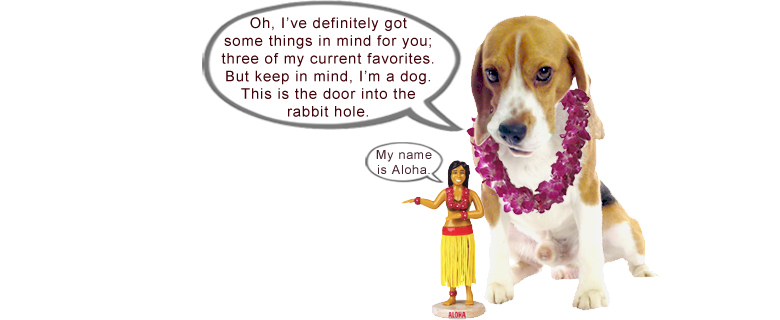
When you have nothing to say, be careful that you don’t pay money to say it.
“What do you mean?”
Have you ever paid a premium to target the right audience and then made an offer that failed to move them?
“Everyone has paid for ads that didn’t work.”
Did you realize that your message was at fault, or did you assume that you had mis-targeted?
“Well, even when it doesn’t work, at least I get some name recognition.”
[sigh] What am I going to do with you? Name recognition is enough only if your competitors are invisible or incompetent.
“What do you mean?”
Invisible means they don’t have the courage to advertise.
Incompetent means their ads are even worse than yours.
“But my ads are way better than average. They look and feel professional.”
Most ads – even professional ads – aren’t written to persuade. They are written not to offend. This is why most ads speak in worn-out clichés. Why not just add a stock photo and get it over with?
“Are you saying that most ads are ineffective?”
Even the weakest ads have an effect, but what you’re looking for is long-lasting, cumulative impact.
“Can you speak more plainly, please?”
Bad advertising is about your product. Good advertising is about your customer and their life. And your customer values nothing so much as they value that circle of people who are close to them. Your customer relates to those people. Your customer identifies with those people. Your customer forgives those people when they screw up.
“I thought we were talking about advertising here. You make it sound like I should spend my ad budget trying to make friends.”
That’s right! I’m talking to you about trying to make friends! When your customer appreciates you and your comments, they consider you to be a friend, even though they have never met you.
“So if I don’t talk about my product, what do I talk about?”
Talk about what your customer already cares about. Don’t try to convince them to care about what you wish they cared about.
“So what does my customer already care about?”
They care about that circle of people I mentioned. They care about the people who care about them. You have the power – if you dare – to take your place in that circle.
“But how?”
By causing your customer to identify with you.
“But why will they identify with me?”
They will do it partly because of what you say and how you say it. But they will do it mostly because of what you don’t say.
“Okay, so tell me what not to say.”
Don’t talk constantly about your company and your product. This just makes your ads sound like ads.
“As much as I hate to say it, you’re beginning to make a little bit of sense. But can you give me an example of what you’re talking about?”
I’ll ask Indy Beagle to put some recent examples on the first few pages of the rabbit hole.
“The rabbit hole? What’s that?”
It’s a weekly e-zine for self-selected insiders.
“Where?”
Just click the image of Indy Beagle at the top of any Monday Morning Memo and you’re in. Indy is reading over my shoulder right now and wagging his tail. I think he has something in mind. I’m curious to see what it is.
Roy H. Williams

Page 5 of today’s rabbit hole will change your future and improve your life. You should definitely invest the time. – Aloha
 Ten, twenty, fifty years from now, will anyone remember your company or your name? In this short-term world, few business leaders are contemplating their long-term brand. Lucas Conley and Mark Miller are out to change that. Conley and Miller argue that leaders with long-term ambitions are the best equipped to stand out, get ahead, and make their mark. Even if your company is barely out of the starting gate, you should listen as Conley and Miller tell roving reporter Rotbart how to start building your legacy right now so that you’ll be around for decades to come. Rotbart has been doing some first-class roving, don’t you think? – Indy Beagle
Ten, twenty, fifty years from now, will anyone remember your company or your name? In this short-term world, few business leaders are contemplating their long-term brand. Lucas Conley and Mark Miller are out to change that. Conley and Miller argue that leaders with long-term ambitions are the best equipped to stand out, get ahead, and make their mark. Even if your company is barely out of the starting gate, you should listen as Conley and Miller tell roving reporter Rotbart how to start building your legacy right now so that you’ll be around for decades to come. Rotbart has been doing some first-class roving, don’t you think? – Indy Beagle